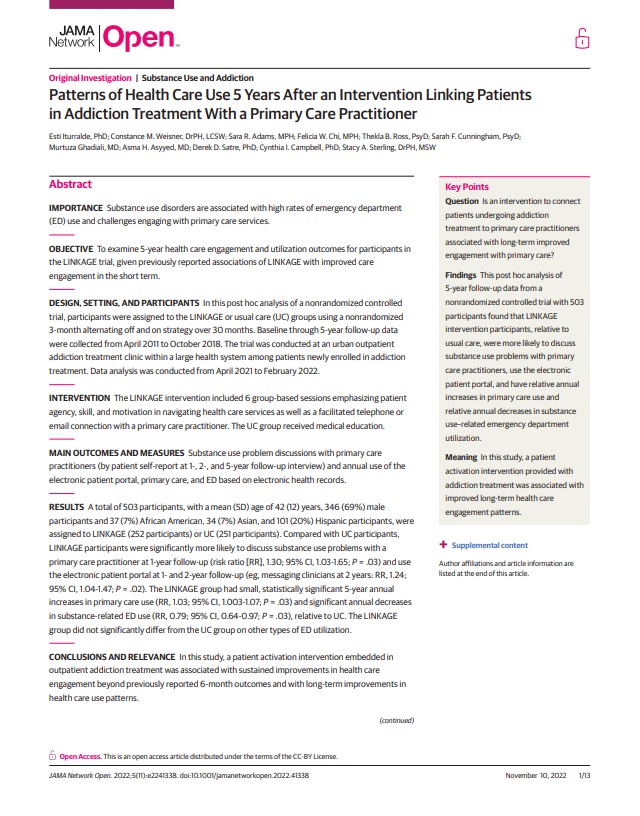Headline
An outpatient addiction treatment program intervention to facilitate connections to primary care improved patient health care engagement.
Context
Many patients with substance use disorder (SUD) visit emergency departments (EDs) as opposed to primary care to address chronic conditions. Some key barriers to primary care engagement for patients with SUD include fears of discrimination due to stigma and restrictive privacy laws that make it challenging for providers to coordinate follow-up care and information-sharing. LINKAGE provides a 6-session, group-based skill-building intervention embedded in an outpatient addiction treatment program, addressing patient-clinician communication, electronic patient portal navigation, and health and recovery goals. This study compared outcomes for participants in the program to a comparison group receiving general medical education.
Findings
The LINKAGE intervention group experienced increased health care engagement for up to five years post-intervention. After one -year, patients in the LINKAGE group were significantly more likely to report discuss substance use with their primary care practitioners than the usual care group (48% vs. 37%) and they were also significantly more likely to use the electronic patient portal for refilling prescriptions and communicating with health care practitioners after five years. Notably, the LINKAGE participants also had significant relative annual increases in primary care use and annual declines in ED use for SUD-related needs over the five years.
Takeaways
Group-based interventions for patients with SUD that focus on increasing patient skills for primary care engagement and destigmatizing discussions between patients and primary care practitioners can lead to positive health care engagement and potentially reduced ED utilization.


